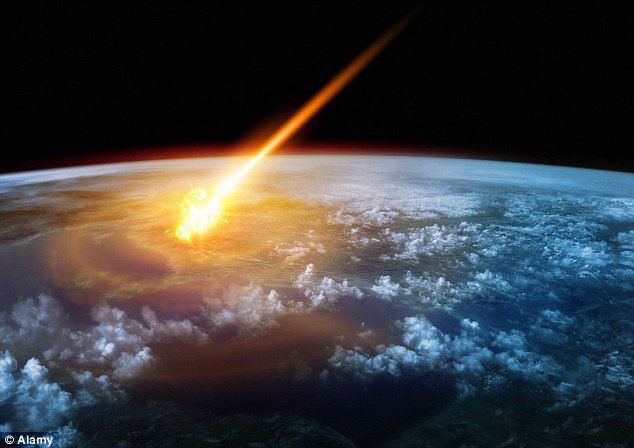
From Steven Novella at Neurologica, replying to Ted Steele, the paper’s senior author:
The claim is that examinations of meteorites have found microfossils representing single-celled life, either bacteria or even algae (eukaryotes). However, these claims are not generally accepted by the scientific community, and therefore cannot be used as a solid premise, let alone the rather arrogant claim that it reverses the burden of proof.
Steele is referring to this paper by Richard Hoover (the reference to “Murchison” is to a meteorite, not a person). The paper was apparently rejected by legitimate peer-reviewed journals, and so was published in the Journal of Cosmology, which has a reputation for publishing low-quality speculation. Hoover also calls himself a doctor but his degree is unclear. The paper itself reads like it was not written by actual scientists – claiming “unambiguous” evidence, for example. It does not follow the humble style that would be far more appropriate to such a claim.
The evidence presented is of small spheres and filaments in the meteorites on microscopic examination. However, Hoover presents no real evidence that the structures are biological rather than minerological. Others examining the evidence notice that the filaments look contiguous with the rock, as if they are extruding from it, rather than embedded in it. The chemical structure is also not typical of cyanobacteria, which Hoover just mentions is “anomalous” but doesn’t address the implications of this. More.
One gets the impression that the journal Progress in Biophysics and Molecular Biology, which published Steele et al.’s paper, will be reluctant to start a lively discussion about origin of life again. Steele learned his lesson. Nothing to see here, folks. Move along.
See also: That panspermia paper at Progress in Biophysics & Molecular Biology generated some heat: Links and analysis
Panspermia (maybe life came from outer space) is back, in Progress in Biophysics and Molecular Biology
and
What we know and don’t know about the origin of life (a generous supply of implausible theories)